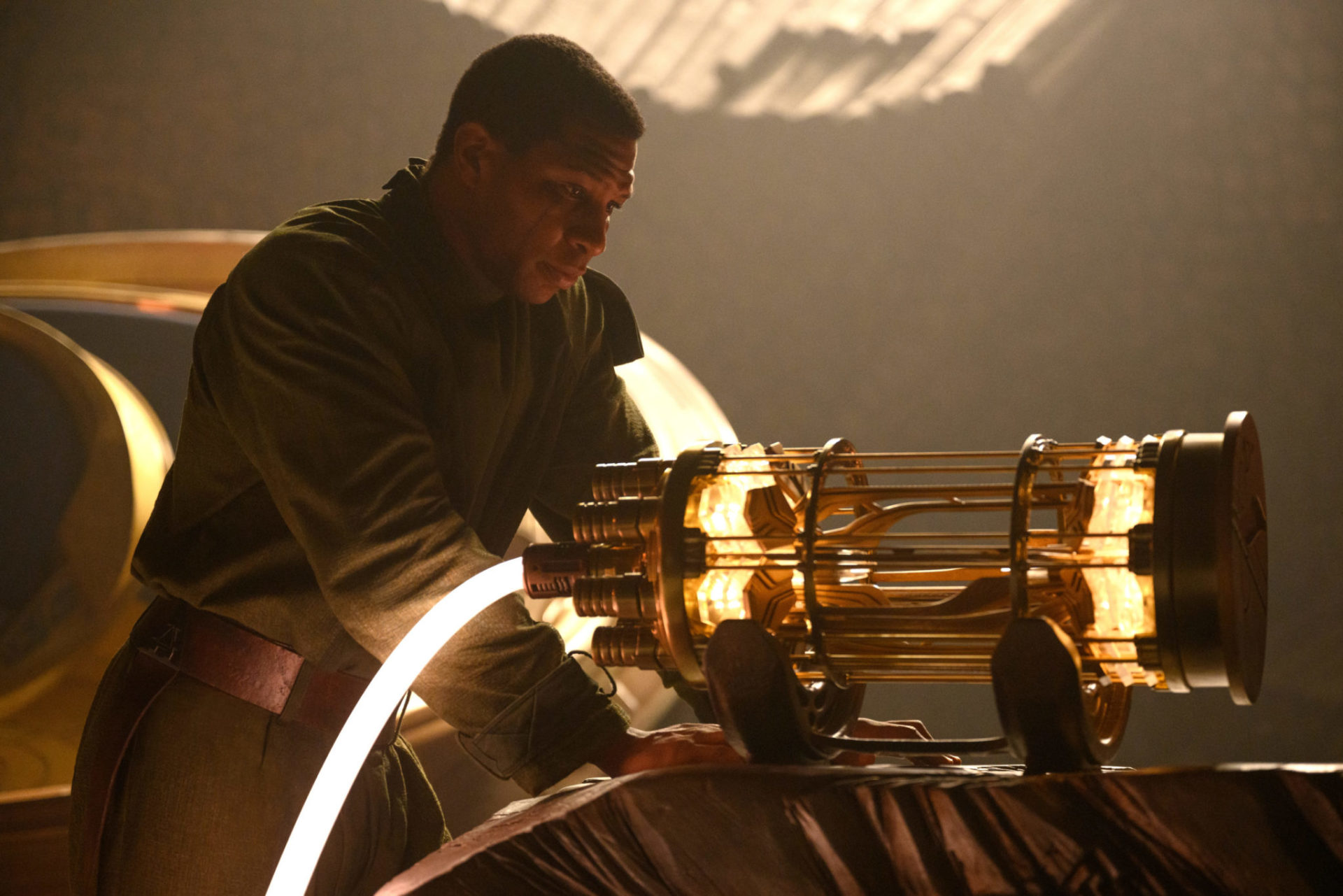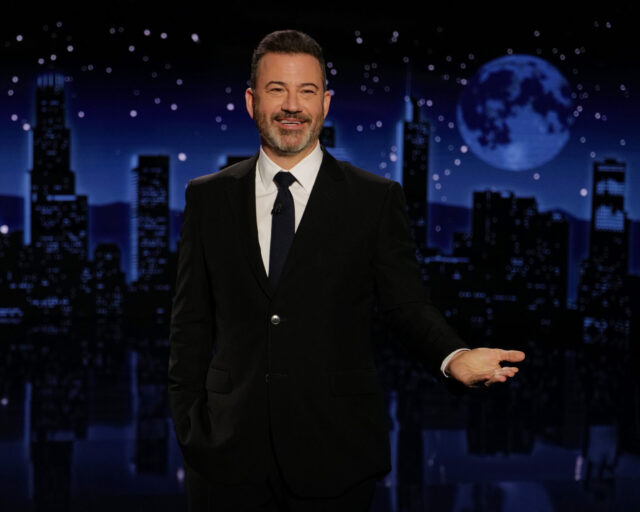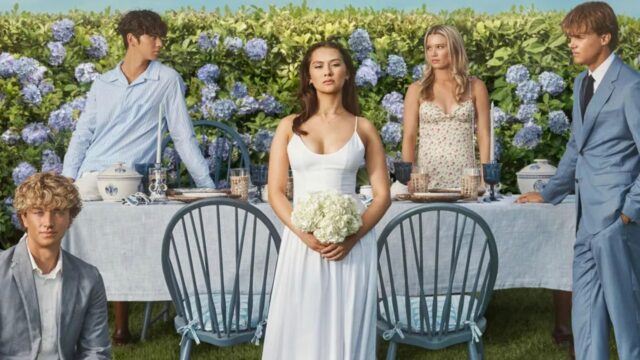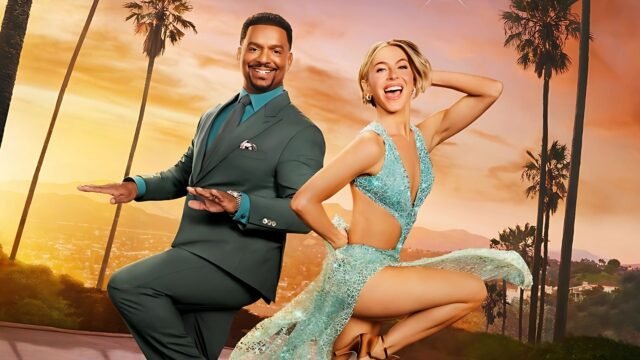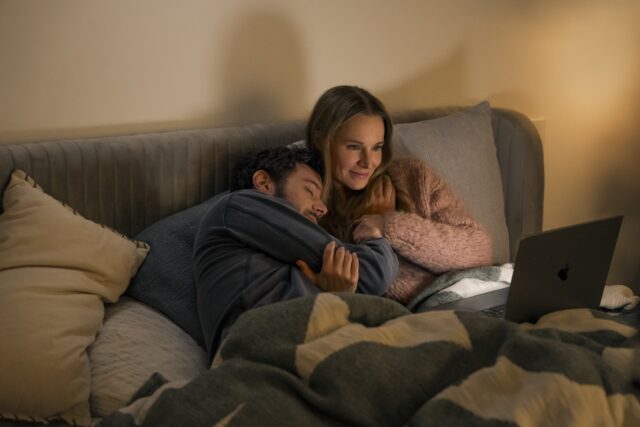Ant-Man and the Wasp: Quantumania, Everything You Need to Know From the Latest Global Press Conference
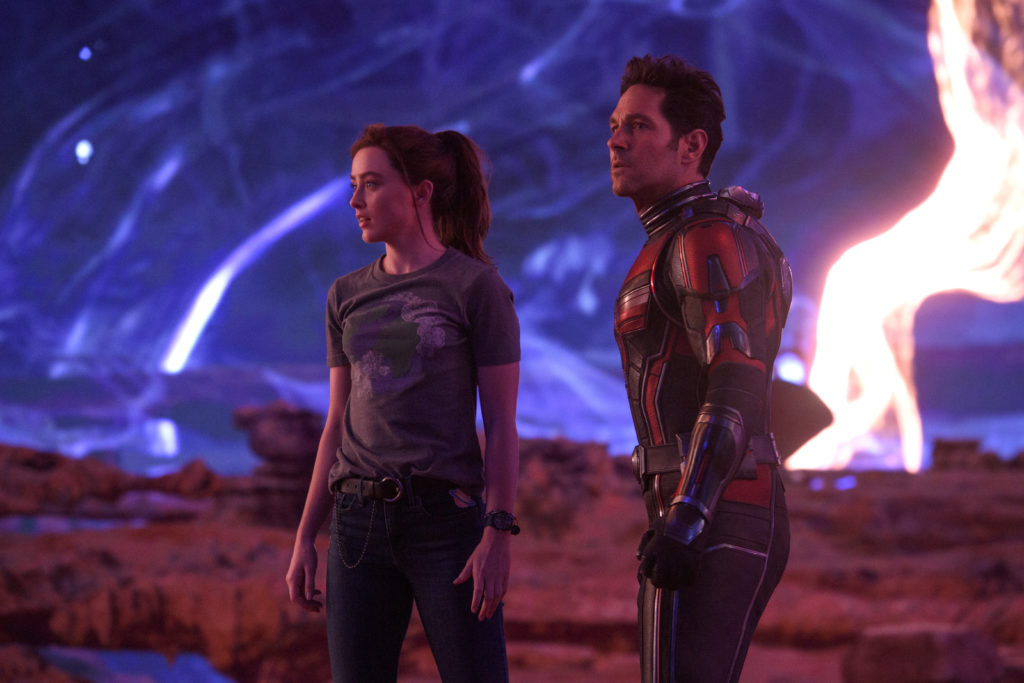
Ant-Man and the Wasp: Quantumania is here and fans are excited to hear what we learned at the global press conference for a Quantum Realm fueled with quantum mechanics, new characters, and a first full-length look at Jonathan Majors as Kang the Conqueror.
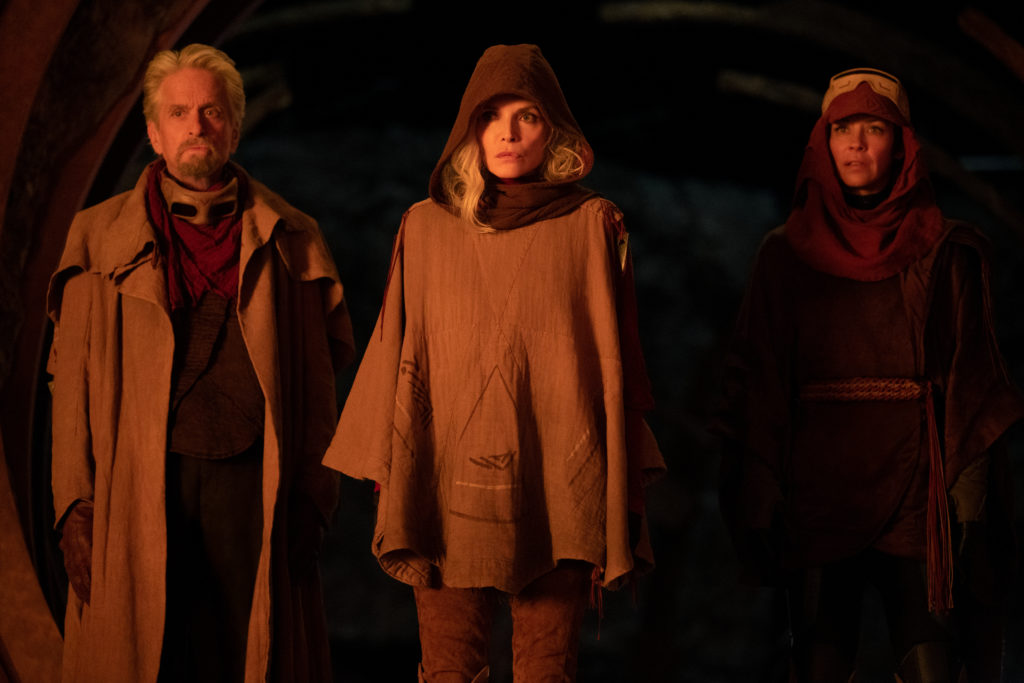
Ant-Man and Ant-Man and the Wasp are two Marvel Cinematic Universe (MCU) films that follow the story of Lang, a thief who becomes the superhero Ant-Man after donning a suit that allows him to shrink in size while increasing in strength. In Ant-Man and the Wasp, Scott teams up with Hope Van Dyne, also known as the Wasp, to fight a new villain and rescue Hope’s mother from the Quantum Realm.
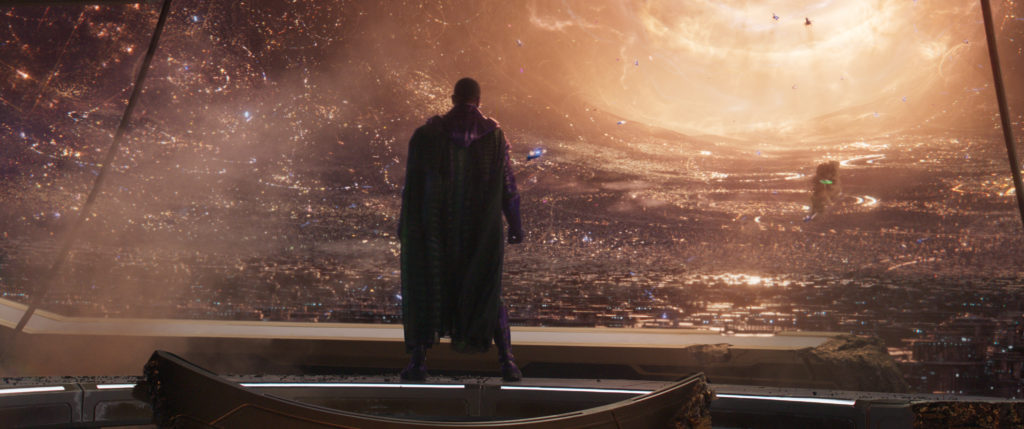
The films are known for their humor, creative use of the size-shifting powers, and their unique heist and spy thriller elements. They also have a strong focus on family relationships and personal growth. Ant-Man and the Wasp received praise for its gender dynamics and for being the first MCU film with a female character in the title. The movies provide a refreshing change of pace from the larger-than-life superhero battles of the MCU, while still delivering thrilling action and memorable characters.
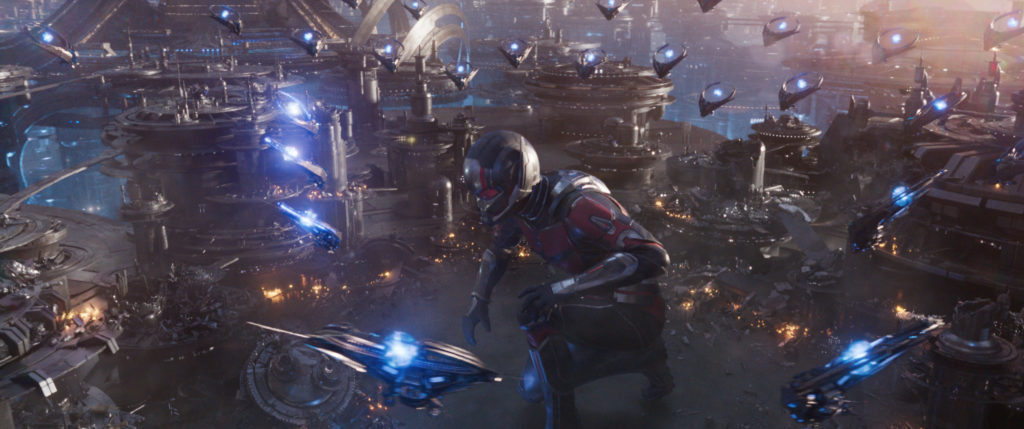
Ant-Man and the Wasp: Quantumania is the first of Phase Five in the Multiverse Saga with Scott Lang protecting not only his family but the multiverse from the threat of Kang. The global press conference included, Paul Rudd (Scott Lang/Ant-Man), Evangeline Lilly (Hope Van Dyne/Wasp), Jonathan Majors (Kang the Conqueror), Kathryn Newton (Cassie Lang) Michelle Pfeiffer (Janet Van Dyne/Wasp), Michael Douglas (Dr Hank Pym), Peyton Reed (Director), Kevin Feige (Producer), and Stephen Broussand (Producer).
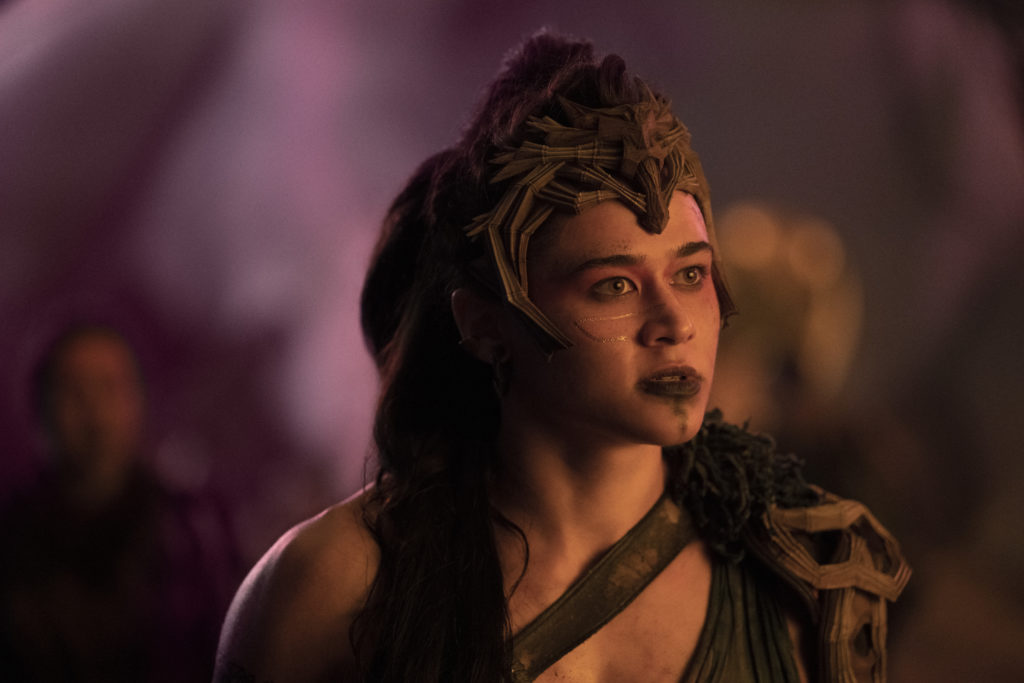
It was noted that the director Peyton Reed has shaped these superheroes and their adventures from the very beginning and he was asked what he would say is the signature of these movies, and how Quantumania continues that while amplifying everything we know about Ant-Man and the Wasp.
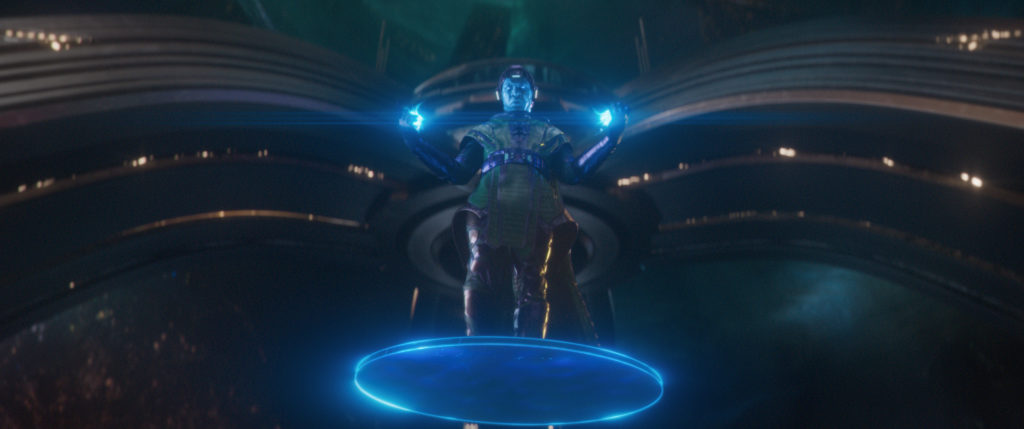
He replied, “Well, I’ll answer the eighth part of your question first, Randall. The Ant-Man movies have really always been about family. It is a generational story about a family of heroes, and Scott Lang, who is not a billionaire or super scientist or anything, getting sucked into this world, and Hope van Dyne who is the legacy daughter of two superheroes, Michael Douglas and Michelle Pfeiffer. So it’s this generational thing, and now young Cassie Lang, who is probably Scott’s biggest motivating factor of, like, having time with his daughter.”
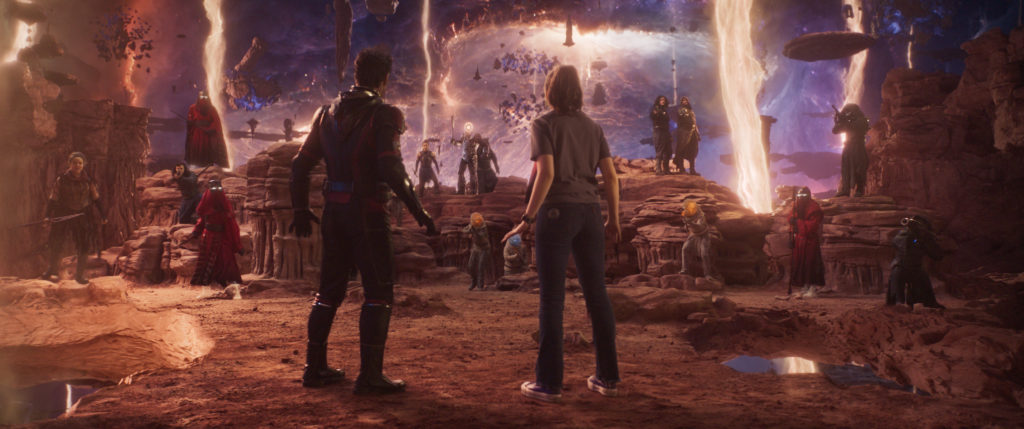
He continued, “He wants to be a hero, obviously. He’s an Avenger, but it’s really about work-life balance and also finding time with his daughter. It’s the most important thing. In this movie, Cassie Lang is 18, but we continue the story of this family, and I think in Quantumania, one of the things we’ve done is really broaden that story and start talking about the secrets the family members keep from each other, the things they don’t tell each other. “
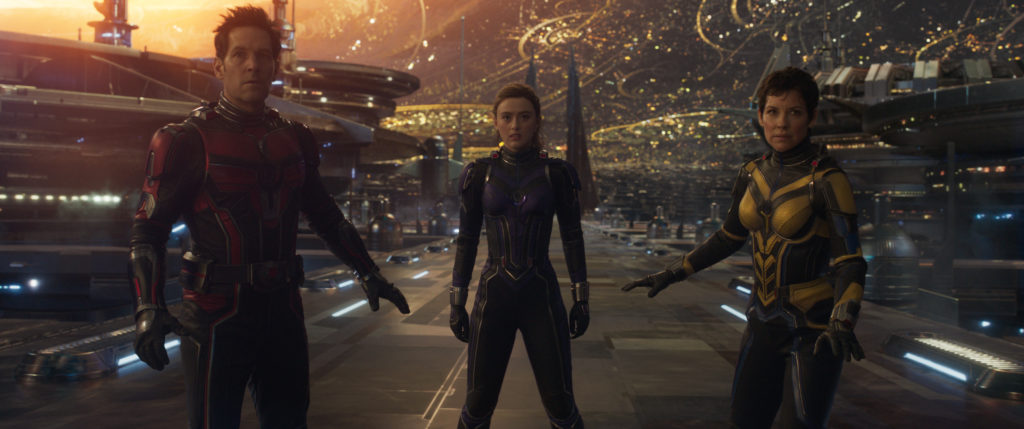
Peyton ended the question by stating, “And at the beginning of the movie, very quickly we find out that maybe Janet hasn’t told the family about her 30 years in the Quantum Realm, and maybe Hope and Hank have not told Scott about what they’re working on with Cassie down in the basement, and maybe Cassie hasn’t told her dad about time she might’ve spent in jail. So everyone’s keeping secrets from Scott at the beginning of the movie, and suddenly, they’re thrust into the Quantum Realm, and they have to kind of work out these family dynamics while being in this bizarro, wacked-out world. But it really is the theme of family that I think is the constant in the movies.”
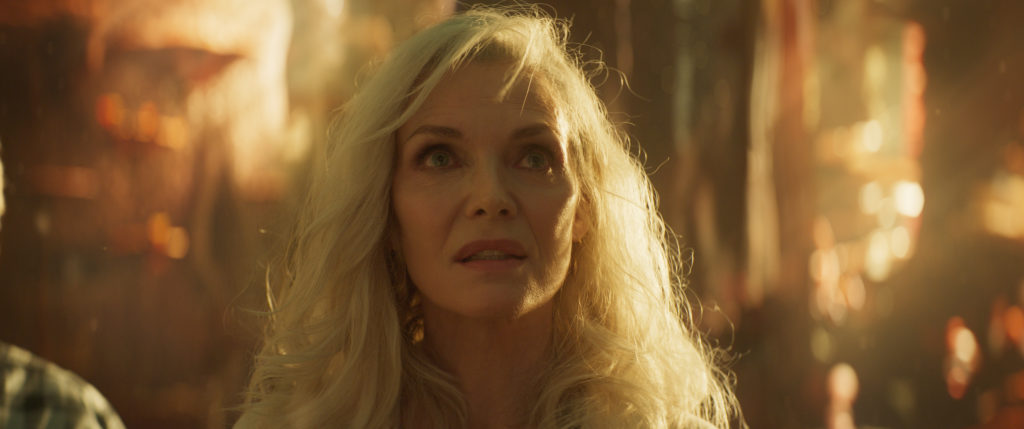
Ant-Man and the Wasp: Quantumania star Paul Rudd was asked after three Ant-Man films, what he liked most about Scott Lang and is there anything that he disliked about him. The actor responded, “Well, I think what I like most about him is that he is a regular guy who has reservations about all of this, still. And that, you know, he’s just a dad. I like the fact that he is kind of a part of this group with some pretty impressive people, and superheroes, and that he would be the first guy to say, “What the hell am I doing here?”
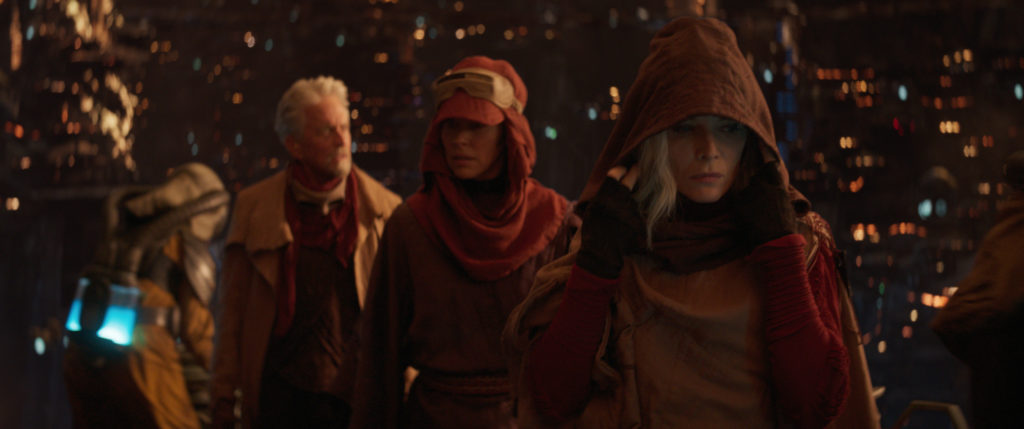
Paul further mentioned, “This makes no sense at all.” And, you know, he’s a real person. And so you want to play, I mean, as an actor, somebody who is relatable and hopefully a sympathetic person. And somebody that, you know, you understand maybe what they’re going through. And I like that. I like playing the father aspect. I like playing the, trying to, you know, wrap my brain around the situation that I find myself in. So his human quality is the thing that I like the most. And as opposed to probably his cyborg quality, which is the, you know, the part I don’t like. No, there’s nothing about the character that I don’t. I like the guy. Yeah. I mean, I’m biased, I guess, but yeah.”
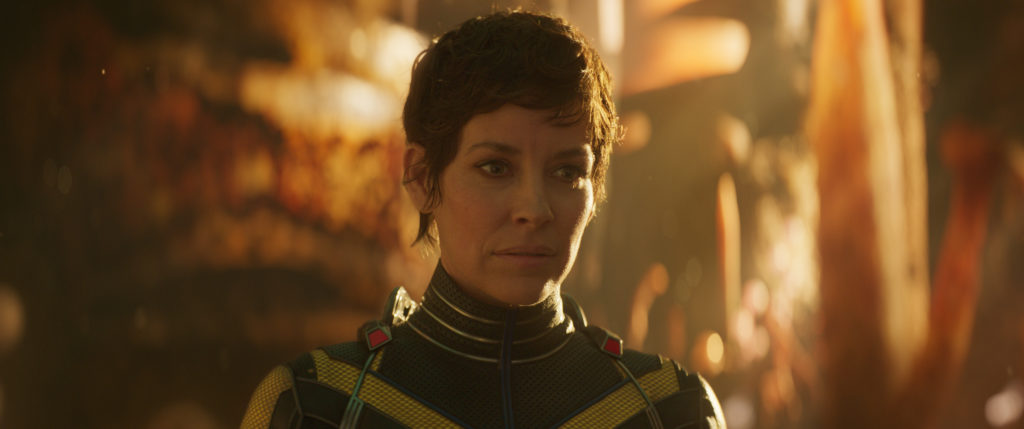
Evangeline was asked if Hope van Dyne has evolved since audiences first met her, and was questioned on what is she doing and doing well in Quantumania as the movie gets underway.

She replied, “Well, Hope started the first Ant-Man film a very cold, detached, very isolated woman. She didn’t have a lot of relationships in her life. She had a lot of broken relationships in her life, and over the course of these three films, I’ve had this incredible arc to be able to play where she has, in that time, repaired her relationship with her father. She’s reunited with her long-lost mother. She’s fallen madly in love with Scott, and she’s become a stepmom to Cassie. And so her life is just full of relationship, and it’s full of love, and she is really like a blossomed version of the woman that we met, and you see that in the work that she’s doing in the world.”
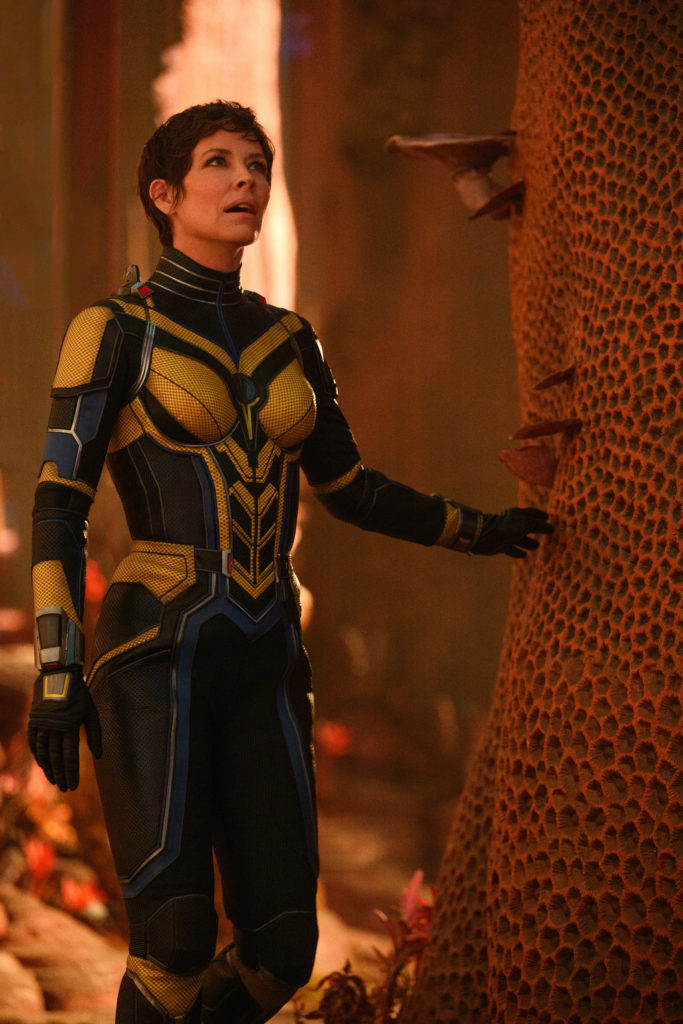
The Wasp actress continued, “She’s thriving and taking that love and spreading it around by trying to do right in the world and fix issues that are massive like global warming and housing crises, and she’s doing it with success. And there’s this little hiccup. There’s this little missing piece, which is that she had always fantasized about her mom coming home one day. And I think ‘cause that fantasy started when she was 8 years old, it was, like, we’re gonna be best friends, and she’s gonna tell me everything, and we’re just gonna be so close. And then she really keeps Hope on the outside, and that’s a wound that is festering at the beginning of the film.”

Producer Kevin Feige was asked, “Since a lot of the film takes place in this Quantum Realm, what exactly is the Quantum Realm, and where have we seen that before?”
He stated, “Wouldn’t we all like to know?” He then continued when asked what Quantumania reveals about the Quantum Realm and he stated, “Well, we first saw it in the first Ant-Man film, and I was sort of reminded recently that this was an idea that Paul had early on before we started filming the first Ant-Man film, to what if we explore this, you know, quantum mechanics, which I’m happy to discuss at length today if you guys want. Things act very differently at the quantum level, and Paul was talking about the amount of storytelling and imagination, and fun that you could have there. The first Ant-Man movie was mainly about meeting the characters and the origin story, of course, but at the very end of that, we got a taste of it, and that is what led to where we took it in Endgame.
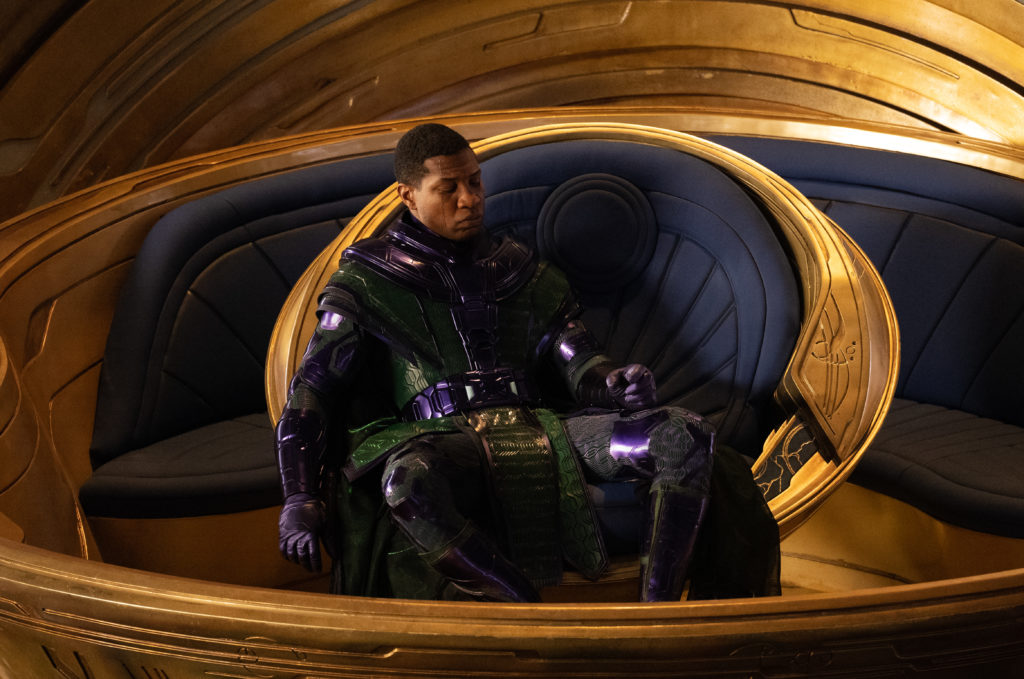
Kevin further mentioned, “And it is a place that is on the subatomic level where space and time act differently, and that allowed us to time travel at Scott Lang’s suggestion in Endgame, and it allowed us to have this entire manic quantumness [phonetic] in this film, where we go to a point where only Janet had ever seen before. And as Evangeline said, she didn’t talk about it too much, where there is an entire universe below the surface where we meet all sorts of fun, crazy characters.”
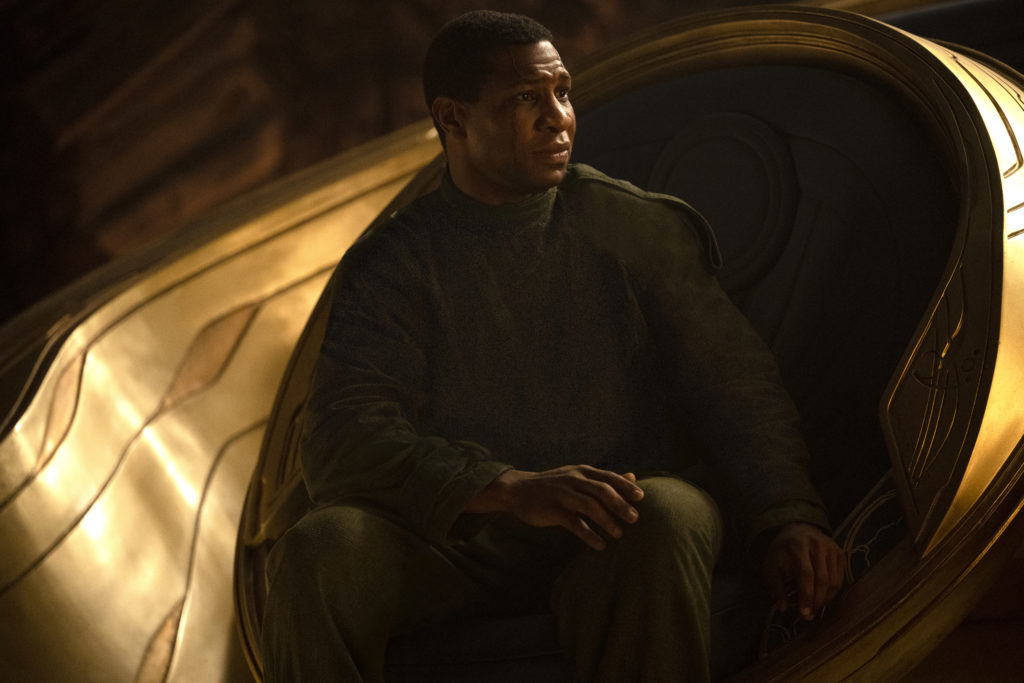
Jonathan Majors was invited to explain his character Kang and the concept of variants and what his approach is to playing them. He replied, “Yeah, of course. Who is Kang? I think that is a question that we will all be answering for a very long time. I think the quick answer to that is Kang is a time-traveling super villain. Who is also a nexus being. Which leads to this idea of variants. There’s multiple versions of Kang. Versions being variants. They occupy different universes, multi-verses, they have different intentions. They are all different beings, and yet something that we’re still and I’m still working on and continue to refine and refine and refine to something as a throughline between them. And that, to me, is the Kang gene.”
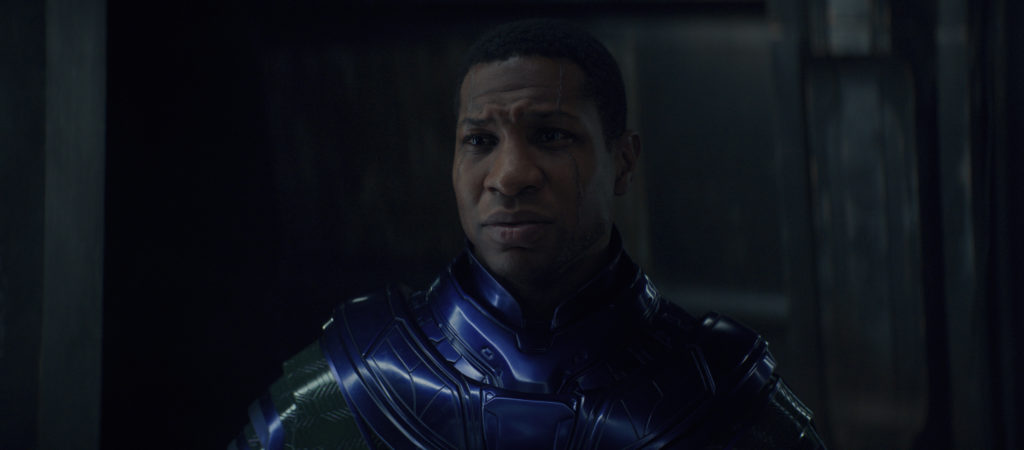
Majors continued, “Kang the Conqueror who we met last night, some met last night, is stuck in the Quantum Realm. And he has some issues with some guys, some variants. And he’s not happy about it. When he was down there, he met Janet. And yeah.”
When Jonathan was asked what his approach is playing Kang as an actor, he replied, “This really feels like joining like the Shakespearean troops back in the day, you know, when you have Shakespeare in the room and you’ve got the guys in the room and they’re just like all right, go, you know? And Shakespeare has a very clear idea of what it is they want to do and you have your lead actor, and they kind of set the tempo and the tone that you get in and you get busy, you know.”
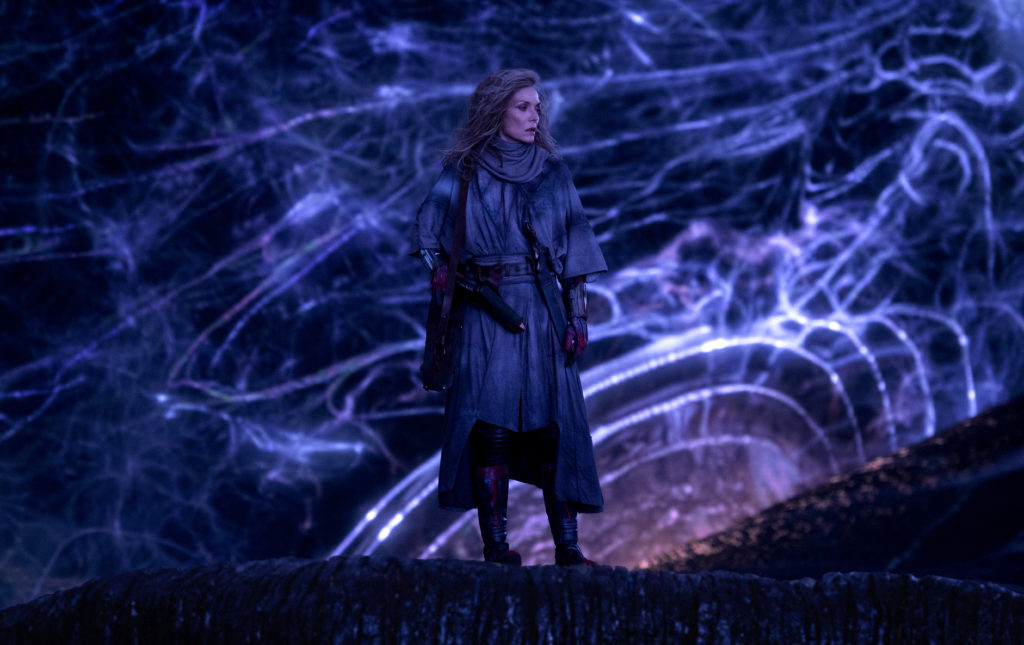
Jonathan elaborated by stating, “And the culture of the play and the story is all there, but it’s really changing. And so, for that, you really have to be very clear about what it is you’re doing and who your character is, the spine of the character, what he’s about, what she’s about, what they’re going after. So, you built that. And the rest of it, you just play hard. At least that was my take, you know. Okay, I think I know. I believe I know until something changes, you know? Play hard, you know, and if we turn left, you turn it left, you know what I mean. And you’re in, you know, Kang gotta Kang, you know.”
He ended the question by explaining, “You turn left. They go right, you go right. So, I mean, that’s the approach. Same as all the other pieces of the people I’m blessed enough to play. Kang is just different in so far that he lives in a very different world.”
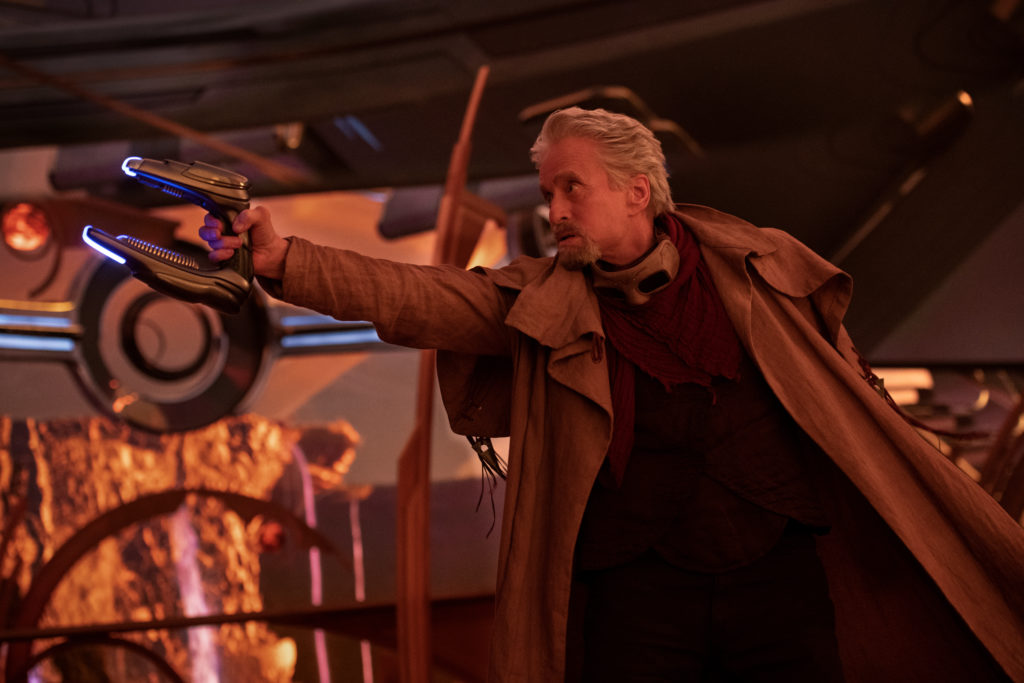
Majors was also asked about the preparation he has to do to capture the distinctness of the different Kang, slash, Who He Remains, et cetera, variations, and the difference in each.
He replied, ” The prep really comes down to who my director is, and who my hero is. Because as an antagonist, we’re following our heroes. You know, in this case, I had a few to kind of look at and break down. Which is the fun part. I look at them and I figure out, okay, you can’t antagonize somebody if you don’t know who they are. If you don’t know what’s the opposite of them. If you don’t know what their hopes and dreams are. My objective is to do that. Antagonize in order to get what I need to fulfill my life, my dream. And so, in Loki, I’m dealing with Tom. You know? It was great. He Who Remains and Tom. I got to watch him the whole time. You know. This opportunity came to me in lockdown. And so I studied Tom Hiddleston for hours a day. You know? And then when that was done, I went, “Okay, Paul Rudd, you’re up.” You know? And I studied him, and I studied him, and I studied all his hero colleagues and co-patriots.”
Majors concluded, “And then you speak to your director, you know. And even your producers, ’cause there’s a culture to it. And again, you lean to the culture, you know? You lean into it. I figure, okay, he’s an everyday man, you know? There’s lines that say, He Who Remains says, ‘I’m just flesh and blood.’ You know? Kang has to relate to him first as a man. As a human being. He relates to all of them as a human being. Then we can combat. Then I can get him to do what I need him to do, perhaps. You know? And the rest of it, there’s always bookwork.”
Ant-Man and the Wasp: Quantumania hits theaters Feb 17. Watch the trailer below.
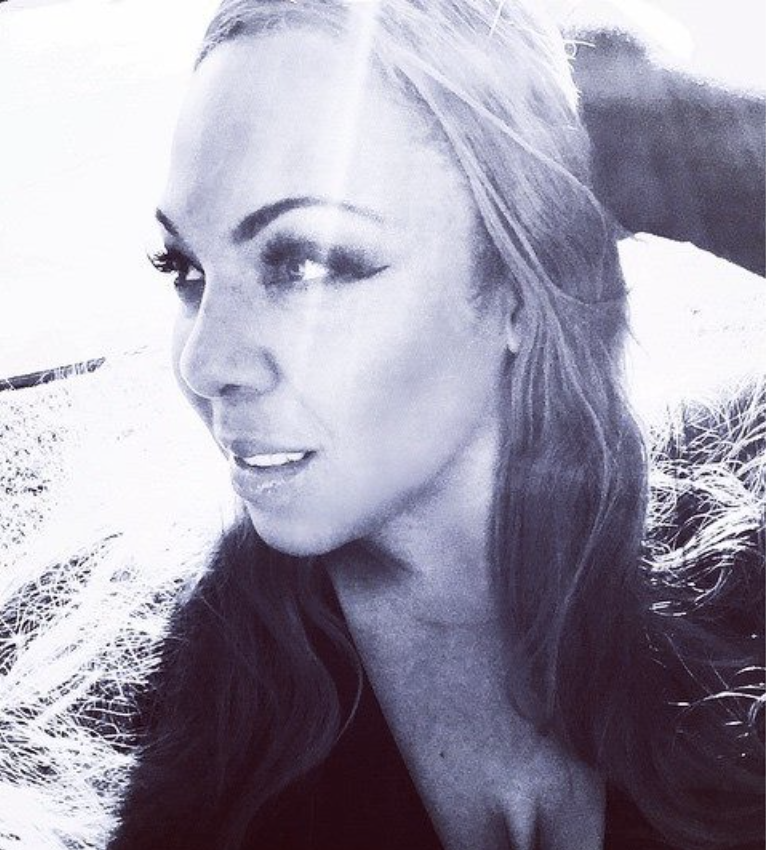
Award-Winning Publisher

